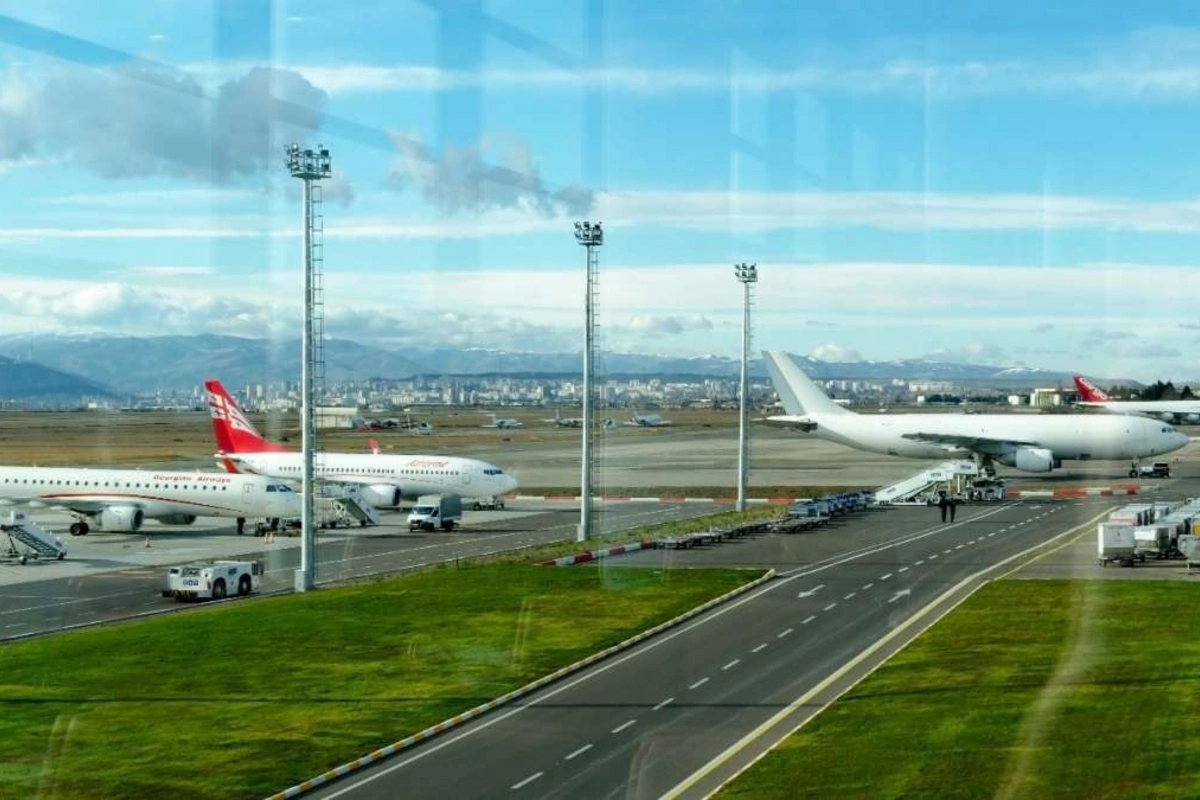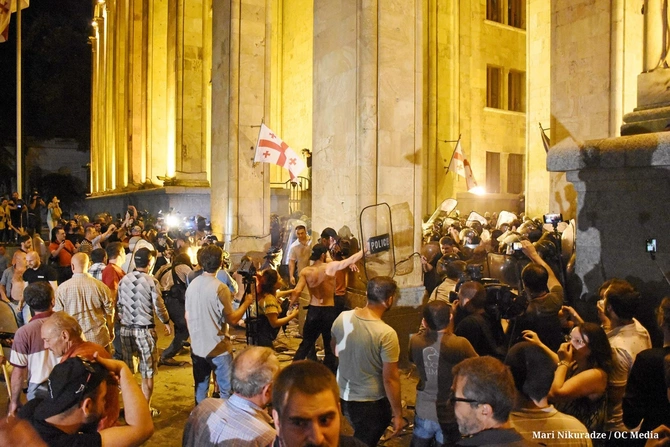
On 15 May, Russia will cancel visa requirements for Georgians, and direct flights between the two countries will soon resume.
Image: Lina Mo/Shutterstock
(OC Media) Russia has cancelled the visa requirements for Georgians to enter the country and lifted a ban on air travel with Georgia.
Russian President Vladimir Putin signed two decrees enacting the move on Wednesday.
Later that day, Georgian Foreign Minister Ilia Darchiashvili welcomed what he said was an ‘independent decision’ by Russia.
‘Over a million of our citizens live in Russian Federation who have very close ties with […] their relatives who reside in Georgia. Exactly through this humanitarian prism, this decision is to be welcomed by any responsible government’, he said.
From 15 May, Georgian citizens will be able to enter Russia visa-free for up to 90 days in every 180 days.
Russian state media cited the Transport Ministry as saying that Russian airlines were already making preparations to operate seven direct flights per week between Moscow and Tbilisi.
President Putin banned air travel with Georgia on 8 July 2019, following anti-government and anti-Kremlin street demonstrations earlier in June.
The protests, dubbed Garvilov’s Night, came in response to the Georgian Government’s invitation to Russian Communist Party MP Sergey Gavrilov to address parliament from the chairperson’s tribune.
Along with Putin’s orders on Wednesday, the Russian Foreign Ministry also revoked a travel warning for visitors to Georgia which was issued after Gavrilov’s Night.

Protesters clash with police in Tbilisi on 19–20 June 2019. Photo: Mariam Nikuradze/OC Media.
Russia introduced visa restrictions for Georgian citizens back in 2000, while the new Georgian Government unilaterally rescinded visas for Russian citizens in 2012.
Russian Foreign Ministry spokesperson Maria Zakharova described Putin’s decision as in line with the country’s ‘principled approach to the consistent facilitation of communication and contacts between citizens of Russia and Georgia, despite the absence of diplomatic relations’.
Georgia cut diplomatic ties with Russia following the 2008 August War, and after Moscow recognised Abkhazia and South Ossetia as independent nations.
Warming ties
The warming of relations between the Georgian and Russian governments has been criticised by many in Georgia, as well as among the country’s Western allies.
President Salome Zurabishvili was the first senior Georgian official to react to the lifting of travel restrictions for Georgians, calling it ‘another Russian provocation’.
In a press conference on Wednesday afternoon, Zurabishvili also urged the Georgian Government to introduce three-month visas for Russian nationals.
In early February, the US State Department said they were ‘concerned’ with the possible restoration of Georgian-Russian air connections, while the EU warned Georgia not to circumvent EU sanctions imposed on Russian aviation.
Speculations regarding a reestablished aviation link between Russia and Georgia and eliminating the Russian visa regime for Georgians reappeared in early December, when Denis Gonchar, director of the Russian Foreign Ministry’s fourth CIS department, did not rule out such a possibility.
On the same day, Russian state-run media TASS quoted Gonchar as ‘noting’ Georgia’s ‘pragmatic line not to open a “second front” [of war] against Russia’ despite what he said were calls from the Ukrainian Government and ‘individual Western countries’.
This resonated closely with the narrative of the ruling Georgian Dream party, which had strongly hinted at a supposed Western conspiracy to involve Georgia in the war.
Weeks later, on 26 December, Russian Deputy Foreign Minister Mikhail Galuzin similarly ‘did not rule out’ rescinding visas for Georgians.
The warnings from the EU and US to Georgia came shortly after Russian Foreign Minister Sergey Lavrov personally weighed in on the matter.
On 18 January, Lavrov responded to a reporter from pro-Russian Georgian TV station Alt Info by expressing ‘hope’ that the air ban would be lifted soon. Lavrov also lauded the Georgian Government for resisting ‘Western pressure’ to join international sanctions against Russia.
‘The fact that a small country and its government have the courage to say that [they will] be guided by their own interests and the interests of their economy is commendable’, Lavrov said.
Later that day, the chair of the ruling Georgian Dream party, Irakli Kobakhidze, closely repeated Lavrov’s wording by saying that the Georgian Government was ‘guided by only one mission — to pursue the interests of Georgia’. Kobakhidze welcomed the possibility of renewed air travel with Russia.
Lavrov continued complimenting the Georgian leadership in February.
Share on social media